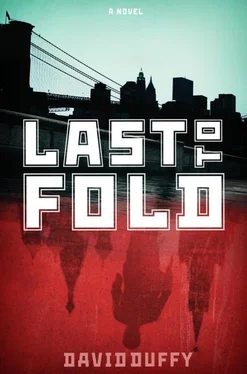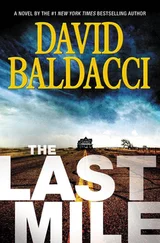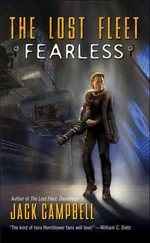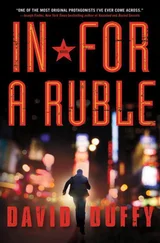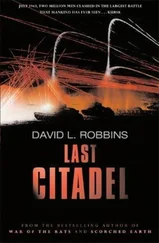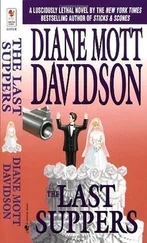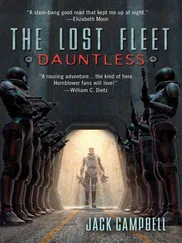“A generous, if ambiguous, offer. Forgive me if I ask why you make it and why I should believe it.”
“Like I said, I’m trying to be the exception to Putin’s rule. That good enough?”
He grinned and adjusted his patch once again. “Admirable, but not remotely good enough. Question is, are you a man one can do business with?”
“Careful. That’s how Brezhnev described Nixon.”
He laughed out loud. “You don’t often meet a Chekist with a sense of humor.”
“Former Chekist, remember? I need a little time, Alexander Petrovich. Moscow wasn’t built in a day. I’ll be in touch. If I’m not, you and Victoria both know where to find me. Where are you staying?”
“You’ll understand if I don’t answer that. I have a local cell phone. Here’s the number.” He handed across a piece of paper. “Do you really follow Ibansk?”
“Doesn’t everyone?”
* * *
I was still thinking about the man in the eye patch an hour later, back downtown. He reminded me of something, or someone, but I couldn’t put my finger on it. I wondered if he wore his white suit in Moscow, where his real identity would be known to those who cared. He was almost daring them—here I am, come and get me. Ballsy, especially since they’d already tried once. Courageous, or crazy, or both. Also, as he said, much too damned well informed—about me.
He’d waited for me at Victoria’s office, and he’d followed me to the hospital. Okay, but how had he pegged me at Greene Street? And what was he doing there? And why hadn’t I seen him?
What had he said—Iakov had only just arrived in New York?
A few minutes later, Expedia.com and the Basilisk supplied the answer. Ratko, traveling as Alexander Goncharov, had flown from Moscow’s Sheremetyevo Airport to JFK on Delta flight 31, which had arrived early at 2:15 P.M. Wednesday. Aeroflot flight 315 carried Alexander Petrovin and Y. Andropov, traveling separately, on the same route and also landed early, at 4:45 P.M. Andropov was Iakov’s own joke—the former Cheka chief and general secretary of the Communist Party died in 1984. Petrovin must have spotted Iakov—or somehow knew he was on the flight—and followed him to Greene Street. Then I showed up, then the locksmith, then… somehow he managed to hang out without getting spotted.
I called Gina.
“When you were at Greene Street Wednesday, did you see a tall guy with black curly hair and an eye patch?”
“Yeah, now that you mention it. He walked up the block and back down a few minutes later. Didn’t stop or look around, so I didn’t pay any attention. Handsome guy, white suit—looks a little like Mark Twain. Did I screw up, not mentioning him?”
“Nope. I didn’t pay him any attention either. Thanks.”
One mystery solved—but new questions raised. Most significantly, to me anyway, why had Iakov followed Ratko to New York? Age and illness made travel difficult, and he hated this city—always had. What prevented his Cheka business from being dealt with in Moscow?
I turned on my laptop. Foos had come through. Or had he?
“Three possibilities. 1) Your prosecutor wannabe pal is schizo. 2) There are two Victoria de Millenuits. 3) She’s had her ID heisted. Doesn’t sound like your type in any event. Proceed with caution—she has a handgun permit.”
The data backed him up. In New York City, Victoria Millenuits owned a condo at Sixty-seventh and Third, for which she paid $1.7 million, no mortgage. She shopped at Bergdorf, Bendel’s and Grace’s Marketplace. She ate at East Side restaurants, especially a place called Trastevere, maintained a five-figure bank balance, and paid off her three credit cards in full every month. In Fayette County, Pennsylvania, she lived at Windy Ridge Home Court, bought kids’ clothes, Wonder Bread, house-brand soda, and the occasional flat-screen TV at Walmart, and had no bank account but four credit cards all pushing their limits. There was a gun permit—in New York—but no phone number.
I was about to pound the desk when I saw his PS at the bottom of the screen—“212-517-4667. Thought I forgot, didn’t you?” Sometimes he’s not as funny as he thinks he is.
I dialed the number, and a machine picked up. Her voice said simply, “Please leave a message.”
“This is Turbo. We Russians are stubborn as well as funny. I’m still hoping you’ll join me for dinner. Tonight, Trastevere, eight o’clock. If you haven’t checked your credit rating recently, I’d advise it. I’m looking forward to seeing you again, I hope under less confrontational circumstances.”
The phone rang as soon as I replaced the receiver. A female voice said, “Please hold for Mr. Mulholland.”
He didn’t make me hold long. “I need your help again.”
“What’s wrong?”
“It’s Eva. She’s… not well. Quite ill, in fact.”
“I know. I found her last night and got her to a hospital.”
“Yes. Bernie told me. We’re grateful. Now she’s run away. She left the hospital this morning. The doorman at her building says she stopped there before noon. Arrived by cab. He lent her the money to pay the fare. Only stayed about half an hour and left on foot.”
“Does your wife know you’re calling me?”
“Felix? No. I’m at my office. I called her, of course. She was frantic, as you’d expect. I said I’d get help.”
“You might want to tell her who the help is.”
“What? Why?”
“Better if she explains. Call her back, then meet me at Eva’s apartment.”
“I can’t leave the office. I’ve got meetings… I’ll talk to her. Lachlan, my driver, will meet you. He’ll have the keys.”
“Half an hour. I’ll come to your office after.”
“Her building’s at—”
“I know where it is.”
“How…”
I hung up before he could finish and headed for the subway.
It took more than an hour to get uptown. A block from the Wall Street station, the sky darkened to the point of nightfall or Armageddon—it felt like even odds which. Close cracks of thunder and street-freezing flashes of lightning portended the latter. A fire hose from the heavens let go as I dropped down the stairs. The train stalled for twenty-five minutes after it left Fifty-first Street. Flooding uptown, the conductor said. The air-conditioning was working, but the car was packed. I’d given my seat to an elderly woman at Twenty-third Street and ended up jammed in the scrum near the door. The old lady got off one stop later, and a young Hispanic man took her place, listening to hip-hop on his headphones so loud the whole car could hear. There are days you can only say, New York—whattayagonnadoaboutit?
The crowd surged up the stairs at Sixty-eighth Street, eager to get out of the subterranean steam—until it met the force of bodies rushing down, pushing to escape the rain. I went with the breaking waves and emerged, lightly bruised, on Lexington Avenue. The rain had slackened, but everything’s relative—still enough to get soaked in short order. I waited under an overhang outside a hair salon until the storm moved on, ignoring the frowns of the black-clad hairdressers who doubtless considered my shaved pate poor advertising. A layer of mist rose from the wet concrete into the waterlogged atmosphere. The temperature hadn’t dropped one degree.
Eva’s building was a big, brutal, thirty-story concrete bunker, with its own similarities to Soviet architecture—the Khrushchev-era apartment blocks that mar Moscow and most every Eastern European city. The only thing you could say for this hulk was, unlike its Communist counterparts, it wasn’t rotting from the outside in and the inside out. The tower ran the full block from Seventieth to Seventy-first Street, flanked by two small parks east and west (probably the price the developer paid for a midblock building this tall) and a covered driveway along the east side. A gray and black Maybach limousine was parked near the door. The driver got out as I approached and ground a cigarette under his heel. He was built like Jimmy Rushing, Mr. Five-by-Five, except this guy was white with a buzz cut so short you couldn’t tell the color of his hair, a flat face, slits for eyes, and purple lips permanently pulled back over tobacco-stained teeth. Despite the heat, he was wearing a cheap wool suit and a flat cap. I looked for the bulge under the arm. It was there. He came in my direction, favoring his right leg.
Читать дальше
